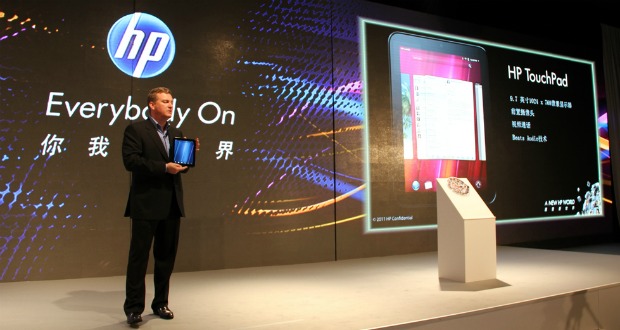How to Uninstall Hp Support Assistant on Windows 7

For Hewlett-Packard's TouchPad tablet, which heads to market on Friday, the company avoided using Android at all costs. Well, actually, at a very specific cost: HP spent $1.2 billion last year to acquire Palm, which helped develop the TouchPad's slick software, WebOS.
HP's tablet strategy–to design and control its own OS–represents a lost opportunity for Microsoft and Google, which build operating systems (Windows, Android) for hardware makers rather than manufacture their own devices. HP is the world's largest PC maker, with a global market share greater than Dell, Acer, Toshiba, Lenovo, and Apple. If even a fraction of that scale of distribution extends to the tablet market, Microsoft and Google will have missed out on a potentially significant source of revenue. For Microsoft, the financial benefits of providing HP computers with Windows software would not translate to the growing tablet market, which analysts say could hit $75 billion in the coming years. And Google, which in many ways has become the mobile (and less-lampooned) equivalent of Windows, would lose a huge player in the consumer-electronics space, after successfully shipping Android on tablets from Samsung, Motorola, and Toshiba.
Of course, all this depends on whether HP actually plans to ship tablets running only WebOS. In recent interviews with top HP executives, Fast Company learned that the company has no interest in outsourcing its software to Google. "We don't do Android," said Phil McKinney, president and CTO of HP's personal systems group. But what about Windows 8?
I asked this question several times when speaking recently with McKinney and Richard Kerris, VP of worldwide developer relations for WebOS. Microsoft is pinning its hopes on Windows 8, making a big splash at AllThingsD this year by showing off its new sexy, stylish looks. Designed with mobile in mind, Windows 8 is meant to provide a consistent UI across smartphones, tablets, and computers. Given that HP is likely to ship hundreds of millions of laptops and desktop computers featuring Windows 8 in the coming future, what are the chances the OS will show up on future HP tablets, in addition to products running WebOS?
"I'm limited to what I can talk about with Windows 8," McKinney says. "We're working very closely with [Microsoft], and I'm going to leave it at that or I'm going to start getting myself into trouble."
Any chance of a Windows 8 tablet, though? "We currently have a product shipping today called the Slate 500, and to be quite honest that product has been doing quite well," he says. "So that's a Windows 7 version, and then we'll have the TouchPad coming out [with WebOS]."
So is it safe to assume there will also be a Windows 8 tablet? A long pause. McKinney literally offers no answer but wears a big grin and after a few moments lets out a loud laugh. The subject is changed, but his coy expression tells me a Windows 8-based HP tablet will likely come to market in addition to the WebOS-based TouchPad.
Kerris, too, was vague on the subject, but his answers were telling if only because the sentiment around Windows 8 was the complete opposite of how he and McKinney talked about Android. Both executives lambasted Android's shortcomings and bluntly said the company had no interest in shipping tablets running the OS. But when it came to Windows 8, neither exec was as definitive.
"Because of our relationship with Microsoft, anything is possible," Kerris says. "If we have a huge customer base that says we need a Windows 8 tablet, by all means, we'd listen."
Kerris could say, however, that there was no current effort in his group to develop a Windows 8-based tablet, but he clarified that he's "responsible for the development environment around WebOS," and that it's McKinney's job to experiment.
So it seems Windows 8 will keep WebOS company in the future. But Android? It wasn't even invited to the party.
[Image via Flickr user HP PSJ APJ]
Follow @austincarr
How to Uninstall Hp Support Assistant on Windows 7
Source: https://www.fastcompany.com/1763998/after-spurning-android-hp-may-offer-windows-8-tablets